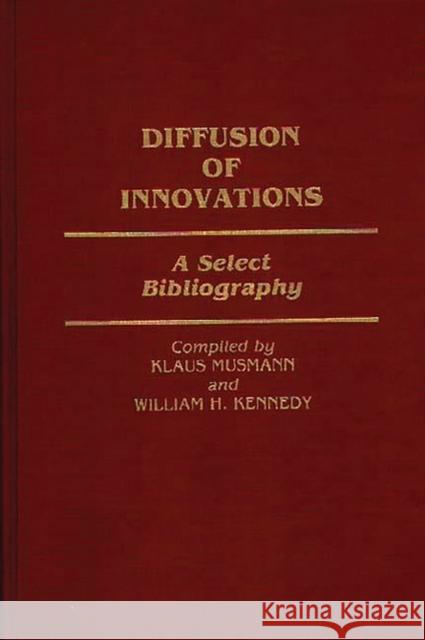Diffusion of Innovations: A Select Bibliography » książka
Diffusion of Innovations: A Select Bibliography
ISBN-13: 9780313266980 / Angielski / Twarda / 1989 / 264 str.
New concepts, new ideas, and new objects diffuse through a society in a fairly predictable, multi-stage process over an indeterminate period of time. In recent years many social scientists representing various disciplines have accepted the methods and findings of diffusion research and it has attained legitimacy and prominence. To make these findings more easily accessible, Musmann and Kennedy have compiled a useful and timely bibliography which contains over 2,300 entries, most of which were published after 1970. Relevant articles and monographs in English were located by the compilers through systematic searches of online data bases and printed indexes. A few foreign language citations are also included here. The interdisciplinary nature of the diffusion model has allowed social scientists to document and illustrate social transformations in diverse fields. Recently, the processes of technology transfer and technological change have come under scrutiny by social scientists. Historically, technological innovations have played a major role in the development of advanced industrialized nations. Therefore, their diffusion, even in one society, often involves significant social changes to both habitat and economy, and should be a well-watched barometer.
Following an illuminating introduction, thirteen separate chapters provide full bibliographical citations for studies in various disciplines including: anthropology, business and economics, geography, history, psychology, and technology, among others. Another chapter is devoted to bibliography and research methods, and author and subject indexes complete the volume. The most comprehensive document of its kind in print, Diffusion of Innovations should find a place in most libraries, especially those collecting materials in communications, education, sociology, and the health sciences.











